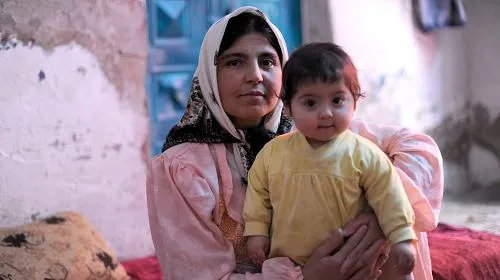AMMAN, Jordan—(July 9, 2015)– More than four years after the beginning of the Syrian conflict, a staggering four million Syrian refugees have been registered in the region by UNHCR; further proof that this protracted crisis is one of the worst in recent history, says aid organization CARE.
“The ongoing conflict in Syria has affected more than half of the nation’s population of 23 million people, four million of whom felt they had no other choice than to flee their country and are now living as refugees,” said Holly Solberg, Regional MENA Director for CARE. “Unfortunately, the humanitarian impacts of this crisis are not sufficiently in the spotlight. We simply aren’t seeing the level of international commitment and sustained resources required to improve the situation. Seven months into the year, only 25 percent of the UN’s funding appeal has been met, indicating that aid commitments to the Syrian crisis have either declined or not been fulfilled, while needs continue to grow.”
“It is not only the needs of refugees, but also the burden on host communities that must be recognized and shared,” added Solberg.
Lebanon is home to around 1.2 million Syrian refugees, making up about 25 percent of the nation’s population. Jordan has 10% of its population now registered as Syrian refugees. Turkey is hosting more than 1.7 million registered Syrian refugees. These countries are suffering from massive impacts on income and expenditures of both refugees and their host communities. Schools are overcrowded, sometimes operating in two shifts, hospitals are unable to provide proper care to all refugees; and water, work, and accommodations have become even scarcer.
“Capacities are more than overstretched. These few neighboring countries cannot handle the burden alone. As the four millionth Syrian becomes a registered refugee in a neighboring country, we call on donors to support organizations such as CARE and the governments of Jordan, Lebanon, Turkey, and the rest of the countries in the region who are hosting hundreds of thousands of Syrian refugees”, said Solberg.
CARE supports Syrian refugees in Jordan, Lebanon, Turkey, Egypt, and Yemen, in addition to helping displaced people inside Syria, through the provision of emergency cash assistance, psychosocial support, information, referrals, and strengthening of water supply and sewage systems, so both Syrian refugees and host families’ lives are improved.
“We should not forget that Syrian refugees, after more than four years of the conflict, are still living in unfinished buildings, rundown apartments, and informal settlements,” said Solberg. “Most of the refugees had to flee their country in a few minutes with nothing but the clothes they were wearing, leaving behind family, friends and the life they had known. They have lost their homes, work, studies, and family members. After years of being refugees, they have no resources left and a very bleak future to look forward to. It’s simply not sustainable, nor acceptable.”
While the four millionth refugee benchmark represents UNHCR-registered Syrian refugees in the region, host governments suspect that the total number of Syrian refugees in their countries far exceeds the official numbers.
“With so few Syrian refugees being resettled worldwide, global communities have a bigger role to play by taking some of the burden off host communities in the region and resettling more Syrians in other countries,” adds Solberg. “CARE calls on the global community to resettle more Syrian refugees from their original host countries.”
According to Amnesty International, the total number of resettlement places offered to Syrian refugees to date is less than 90,000.
-ENDS-
Media contact: Holly Frew +1.404.979.9389 hfrew@care.org
About CARE: Founded in 1945, CARE is a leading humanitarian organization fighting global poverty. CARE has more than six decades of experience helping people prepare for disasters, providing lifesaving assistance when a crisis hits, and helping communities recover after the emergency has passed. CARE places special focus on women and children, who are often disproportionately affected by disasters. To learn more, visit www.care.org.

